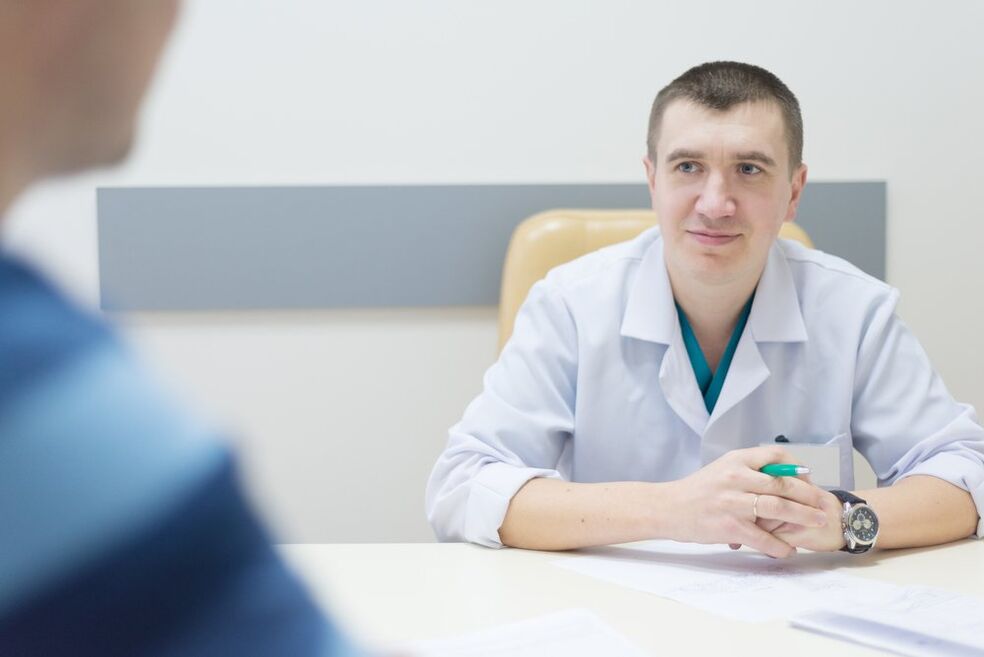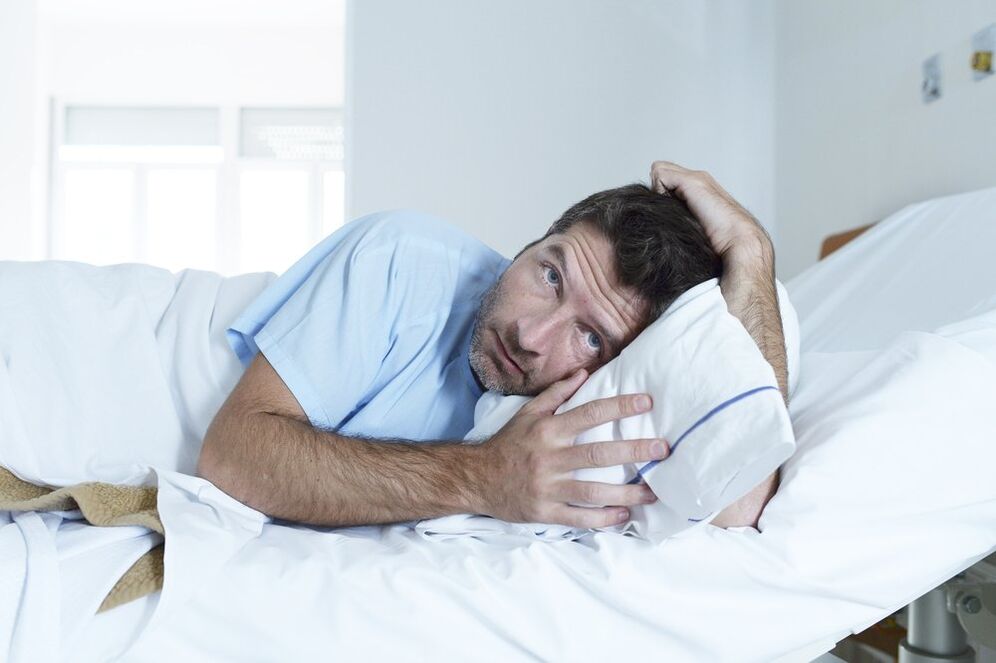Prostatitis is a dangerous and complex male disease, which is quite difficult to diagnose in the early stages.This is an inflammatory process that develops in the prostate area and is accompanied by pain, urinary problems and the appearance of problems with men's health.
Prostatitis - What is it?

Prostatitis is an inflammation of the prostate, that is, the prostate gland located between the bladder and the male reproductive organ and around the urethra, called the urethra.The latter receives substances through the channel from the prostate that promote normal sperm function.The prostate gland is protected by a membrane, the basis of which is connective tissue.The network of blood vessels of the prostate provides blood supply to the pelvic organ, and the muscles within the gland itself help to retain urine and release glandular secretions along with sperm during ejaculation.
The full development of the male prostate is completed at the age of seventeen, and after the age of sixty, all functions of the prostate gland decline, as a result of which its components are replaced by connective tissue.Such changes affect human health, causing general weakness and decreased tone.However, such pathology can appear at an earlier age.The most common cause of this is chronic prostatitis, which is a benign inflammatory process of the prostate.
In addition to chronic, there is another form of the disease - acute.In acute prostatitis, the infection enters the excretory duct of the gland.
Symptoms of acute and chronic prostatitis

The most common causes of prostatitis are:
- Various types of infections that come from the urethra, testicles and appendages, bladder or other inflamed organs.
- insufficient physical activity;
- weak immunity;
- the presence of a chronic inflammatory process;
- association;
- cases of hypothermia;
- urinary tract damage;
- stool disorders;
- problems with blood circulation in the pelvic organs;
- hormonal imbalance;
- poor nutrition.
Chronic prostatitis can be diagnosed by the appearance of the following symptoms:
- Problems with sexual function - the appearance of pain in the urethra, as well as in the rectum during ejaculation, erectile weakness, cases of premature ejaculation, lack of orgasm;
- Disorders in the activity of the urinary system - pain during urination, frequent urge to urinate, painful sensations in the lower abdomen, feeling of incomplete emptying;
- Irritation and anxiety caused by increased attention to one's health condition.
The acute form of prostatitis is characterized by high body temperature.The process of urination is difficult and accompanied by pain.Swelling develops in the prostate area, which can cause urinary retention.
Chronic prostatitis passes more calmly, but the possibility of its severity cannot be ruled out.
In addition, improper treatment of prostatitis or its absence can cause unwanted consequences, for example:
- Severe pathology of the bladder that requires surgical intervention;
- the development of infertility;
- progressive cystitis;
- development of pyelonephritis, as well as other kidney pathologies;
- purulent inflammation that requires surgical treatment;
- Narrowing of the urethra.
Treatment of prostatitis: drugs used

In the case of an acute form of the disease, immediate hospitalization of the patient in the urology department is required.When this is not possible, prostatitis treatment takes place in the surgical department.
General methods of treating prostatitis in the acute stage include measures such as:
- Antibacterial therapy.
- Mandatory bed rest.
- Treatment of prostatitis with drugs that ensure normal blood circulation.This approach helps increase the outflow of lymph, as well as venous blood from inflamed glands, and helps remove waste products from the body.
- Use of painkillers.
- It is possible to use other analgesics.In addition to the fact that these drugs relieve pain, they to a certain extent help reduce the inflammatory process.Sometimes doctors prescribe rectal suppositories that contain the same ingredients as pills.They increase the therapeutic effect due to the local effect.
- If prostatitis is accompanied by severe hangovers, detoxification agents are prescribed.
The need for surgical treatment appears in the case of a complete inability to urinate independently, or in the case of a prostate abscess.
Treatment of chronic prostatitis should be comprehensive.The main therapeutic methods are:
- Take non-steroidal anti-inflammatory drugs.
- Taking medications that promote better lymphatic drainage and increase blood supply to the pelvic organs.
- Taking immunomodulatory drugs.At the same time, the doctor may suggest treatment with drugs that help relieve swelling in the prostate area, improve blood circulation, and also reduce the possibility of blood clots.
- To restore erection, in some cases, antidepressants and sedatives are prescribed.
- Systematic physical training will help normalize the blood supply and strengthen the pelvic muscles.It is good if the training set is compiled by an expert in therapeutic exercises.
- An effective way to treat chronic prostatitis is a rectal massage procedure.Its main goal is to normalize blood supply, speed up metabolic processes and eliminate congestion.But, unfortunately, such techniques sometimes cause not only physical, but also psychological discomfort among representatives of the stronger sex.For this reason, they deliberately delay visiting the doctor, which worsens the situation.
Prevention of the development of prostatitis
Everyone knows that any disease, including prostatitis, is easier to prevent than to treat.To avoid this unpleasant disease, the following preventive measures must be observed:
- Prevention of hypothermia.
- Maintain a soft diet - Limit consumption of alcoholic beverages, fried and canned foods.
- Prevention of prostatitis can also be called the regularity of sexual intercourse, because one of the reasons for its occurrence is the stagnation of sperm, as well as frequent erections without subsequent ejaculation.
- Prevention of sexually transmitted diseases is also important.
- Regular visits to the doctor: An adult man should visit a specialist every year for a medical examination.
After treatment of prostatitis, it is recommended to carry out a maintenance course of outpatient therapy every six months and a one-time treatment in a sanatorium.























